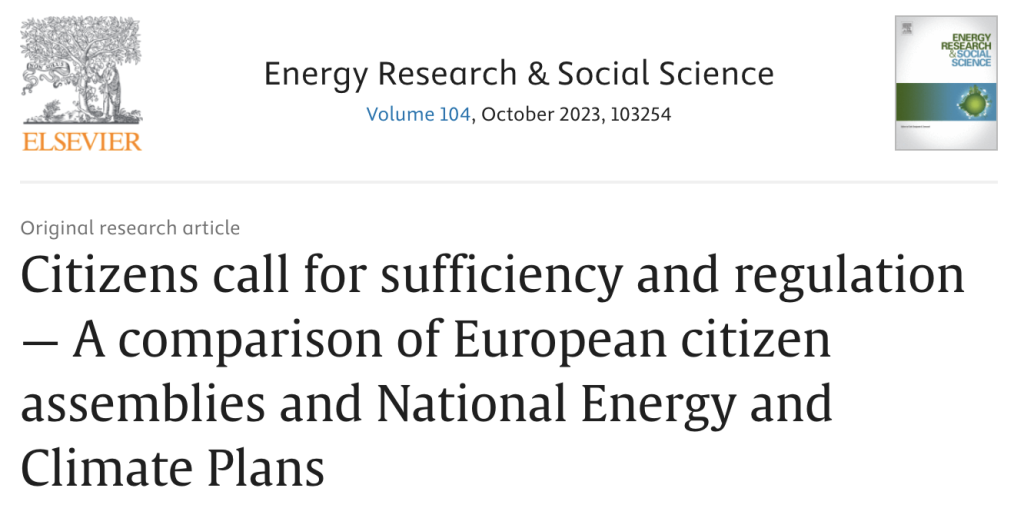The EnSu junior research group has published a study on the recommendations of citizens’ councils. The starting point for this was the question of the actual willingness for sufficiency policy. Sufficiency policy measures are often categorised as precarious with reference to a supposedly difficult to non-existent acceptance among the population. However, the study shows the opposite: there is interest in a stronger sufficiency policy. The citizens’ councils, which are put together randomly taking socio-economic characteristics into account, call for many regulatory and sufficiency measures.

Compared to the national energy and climate plans (NECPs), the recommendations of the citizens’ councils contain a significantly higher proportion of sufficiency measures (three to six times more) with a stronger focus on regulatory measures. Consequently, the recommendations can be interpreted as a call for a sufficiency and regulatory turnaround in climate protection policy.
Click here for further information on the topic by Jonas Lage
